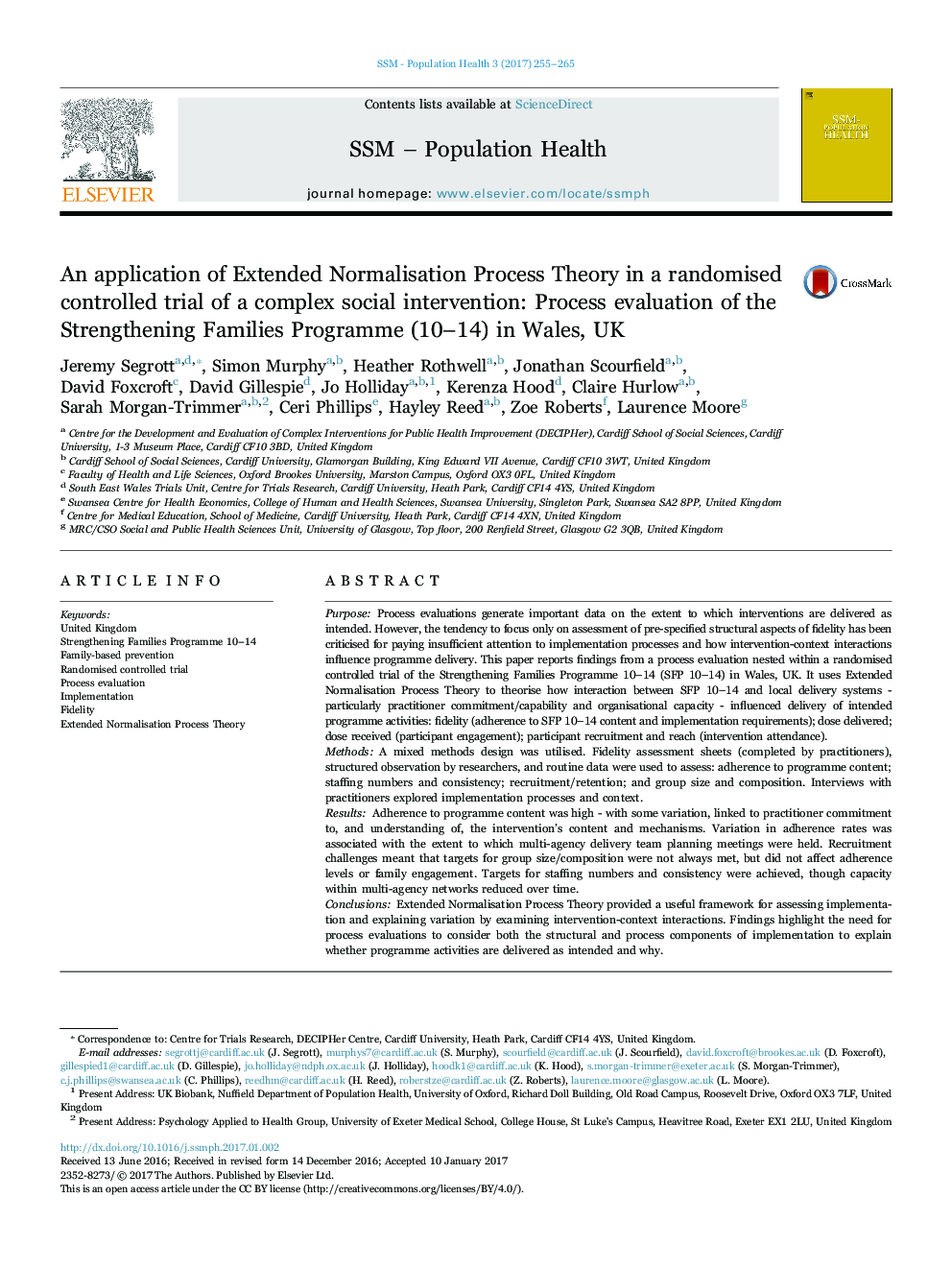| کد مقاله | کد نشریه | سال انتشار | مقاله انگلیسی | نسخه تمام متن |
|---|---|---|---|---|
| 5123256 | 1487259 | 2017 | 11 صفحه PDF | دانلود رایگان |

- Uses Extended Normalisation Process Theory to theorise intervention implementation.
- The Strengthening Families Programme was delivered with good overall fidelity.
- Adherence to planned content and staffing guidelines was high, with some variation.
- Recruitment of families was challenging and affected group size/composition
- Intervention-context interactions shaped variation in fidelity and implementation.
PurposeProcess evaluations generate important data on the extent to which interventions are delivered as intended. However, the tendency to focus only on assessment of pre-specified structural aspects of fidelity has been criticised for paying insufficient attention to implementation processes and how intervention-context interactions influence programme delivery. This paper reports findings from a process evaluation nested within a randomised controlled trial of the Strengthening Families Programme 10-14 (SFP 10-14) in Wales, UK. It uses Extended Normalisation Process Theory to theorise how interaction between SFP 10-14 and local delivery systems - particularly practitioner commitment/capability and organisational capacity - influenced delivery of intended programme activities: fidelity (adherence to SFP 10-14 content and implementation requirements); dose delivered; dose received (participant engagement); participant recruitment and reach (intervention attendance).MethodsA mixed methods design was utilised. Fidelity assessment sheets (completed by practitioners), structured observation by researchers, and routine data were used to assess: adherence to programme content; staffing numbers and consistency; recruitment/retention; and group size and composition. Interviews with practitioners explored implementation processes and context.ResultsAdherence to programme content was high - with some variation, linked to practitioner commitment to, and understanding of, the intervention's content and mechanisms. Variation in adherence rates was associated with the extent to which multi-agency delivery team planning meetings were held. Recruitment challenges meant that targets for group size/composition were not always met, but did not affect adherence levels or family engagement. Targets for staffing numbers and consistency were achieved, though capacity within multi-agency networks reduced over time.ConclusionsExtended Normalisation Process Theory provided a useful framework for assessing implementation and explaining variation by examining intervention-context interactions. Findings highlight the need for process evaluations to consider both the structural and process components of implementation to explain whether programme activities are delivered as intended and why.
Journal: SSM - Population Health - Volume 3, December 2017, Pages 255-265